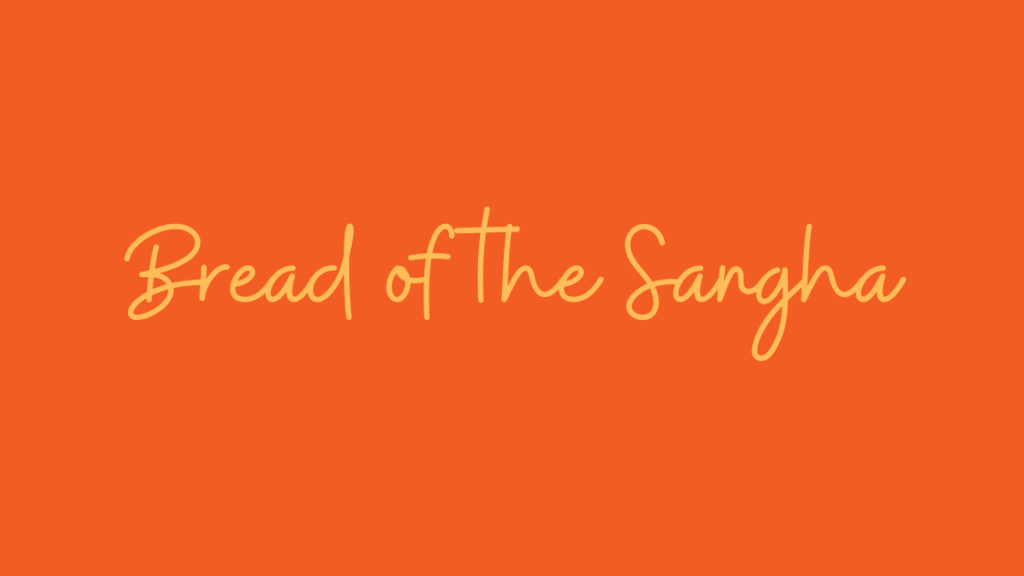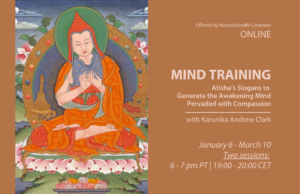Every Christmas my mom makes the most delicious braid bread from scratch. It’s an old family tradition, and I can’t imagine the holiday without it. I would watch her preparing the dough—carefully measuring and mixing the ingredients, consulting the worn recipe handwritten in the beautiful script of one of our ancestors, setting it by the radiator to rise, artistically braiding it together. The smell of it baking is a cherished memory and an inherent part of the season.
The Buddhist sangha, the community of practitioners, is similar to this traditional bread. The heritage of our lineage of awakening has been handed down generation to generation, unbroken, for over 2,500 years. The honored recipe, and especially the starter dough with its living yeast that makes it so special, are like the instructions from our precious teachers. In the same way that my family has passed along our old recipe, practitioners incorporate the Buddhist teachings into our lives, and pass them down to our descendants so they too can engage the methods and directly realize their own minds.
Reflecting on the sangha, especially in the context of the Buddhist practice of taking refuge, I think about those who have gone before us and shared their wisdom. While we value the entire community as our companions on the path of awakening, we go for refuge to our spiritual friends who have realized the nature of mind, who are referred to as the “noble sangha.” Historically, this included the Buddha’s disciples, and contemporaneously, it includes those who hold the lineage and teach the genuine dharma. They have already walked the path, and we benefit from their experience and follow their guidance. When we express our gratitude and respect for them with body, speech, and mind, we work with our own hearts to progress along the path.
Through the reciprocal relationship of giving and receiving, we engage the interdependence of benefiting self and other. Practicing generosity with the members of the sangha, we share our bread and simultaneously uncover the wisdom of the ultimate truth within ourselves. The activity of compassion reveals the lack of separation between us and allows the qualities of awakening to spontaneously shine.
The sangha is both the bakers and the bread itself. We receive the recipe of enlightenment and integrate the living starter dough into our lives. We are nourished when we experience the true nature of mind, and then we lovingly share the dharma without compromise. Through appreciating our ancestors, teachers, and spiritual companions, we recognize nonduality and provide sustenance to ourself and others.
Contemplation
- Think about a favorite food from your culture or family of origin.
- Bring to mind how the recipe has been preserved and shared over time.
- Recognize the work it takes to grow and gather its fresh and nutritious ingredients.
- Notice the time and the generous efforts of those who prepare the dish.
- Celebrate the joy of sharing this wonderful food, nourishing ourself and others.

Nick Vail is a Karunika (teacher) for Nalandabodhi who lives in Maine.
A single parent, he enjoys quality time with his son, being in nature, playing the guitar, singing, dancing, and meditation.






